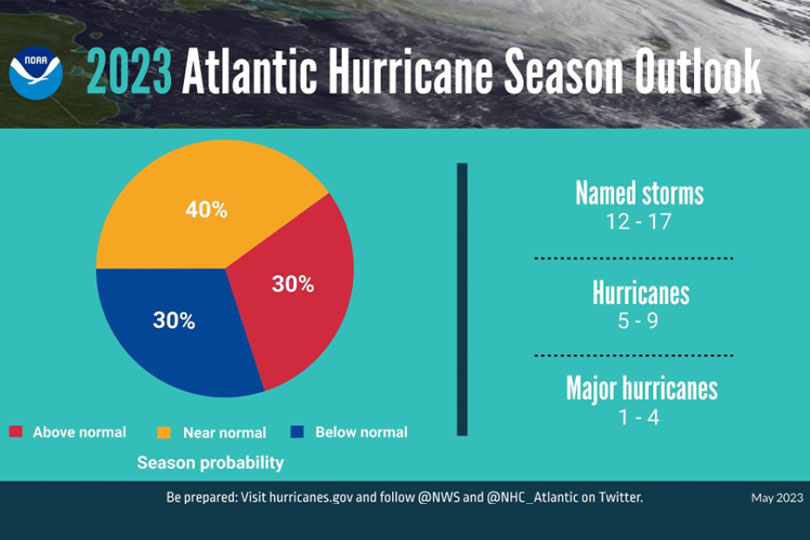By Emmy Powell
Communications Specialist
A “near normal” Atlantic hurricane season is expected again this year, according to the National Oceanic and Atmospheric Administration (NOAA).
Weather experts said there is a 40% chance the 2023 hurricane season is near normal, a 30% chance of an above-normal season and a 30% chance of a below-normal season.
“Right now, we’re looking at a season that’s going to be relatively normal in terms of the number of named storms,” said Tom Bradshaw, Fort Worth and National Weather Service Meteorologist in Charge. “We should have somewhere between 12 and 17 named storms. And, out of those, we may see somewhere between five and nine hurricanes across the Atlantic Basin. So, not a super quiet season, but not an incredibly active one either.”
Based on the Saffir-Simpson Hurricane Wind Scale, “major hurricanes” are Category 3, 4 or 5 and have sustained winds of 111 miles per hour or higher.
Bradshaw told the Texas Farm Bureau Radio Network there are two factors to consider when looking at this season: El Niño weather conditions and warm water temperatures.
“On the global scale, we have an El Niño pattern that’s setting up across the Atlantic Basin. That normally acts to suppress tropical activity in the Atlantic,” he said. “This particular year, we have sea surface temperatures that are well above normal, so we have plenty of nice warm water out there, and that’s a prime ingredient for enhancing tropical activity in the Atlantic.”
For those living along the Gulf Coast and down along the Rio Grande Valley, it’s important to be prepared.
“Everyone needs to have a plan. Obviously, it’s getting to be that time of the year, so if you live in the coastal regions, you need to have a tropical safety plan in place to know what to do if a storm threatens your area,” he said.
NOAA’s outlook is for overall seasonal activity and is not a landfall forecast.
Hurricane season, which started June 1, ends Nov. 30, but hurricanes can make landfall outside of the typical season.
For more information on hurricane season, visit www.weather.gov.

